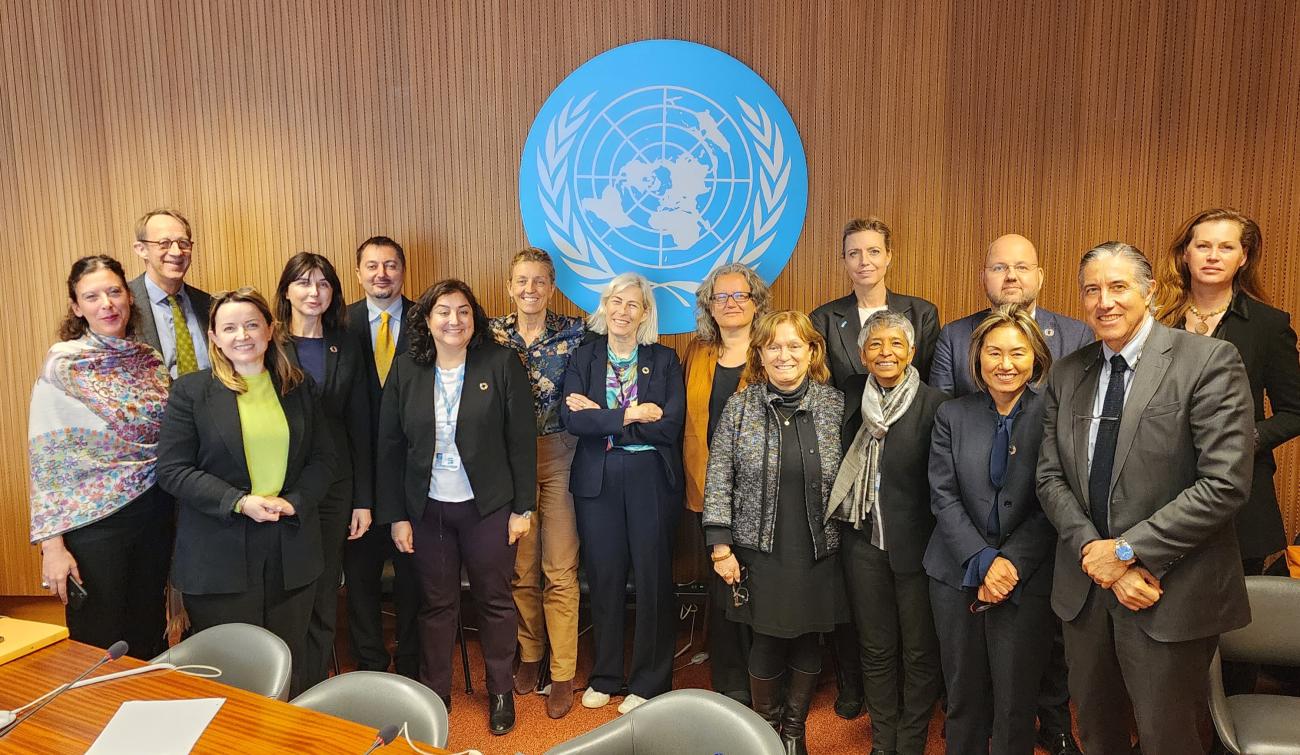UN Deputy Secretary-General calls on UN Resident Coordinators in Europe and Central Asia to adopt an inclusive, ‘can do’ approach to achieve the SDGs

From the war in Ukraine, increased geopolitical tensions and unresolved conflicts to catastrophic natural events such as the devastating earthquake in Türkiye, the Europe and Central Asia region is facing profound and cross-cutting challenges curtailing progress towards the Sustainable Development Goals (SDGs). This was one of the main issues discussed at the annual meeting between the UN Deputy Secretary-General Amina J. Mohammed and Resident Coordinators (RCs) across the region, held on March 31 in Geneva, Switzerland. The response to these compounded crises illustrates that the global financial system is morally bankrupted and not fit for purpose, the UN Deputy Chief said.
Ms Mohammed noted that halfway towards 2030, most of Europe and Central Asia is struggling to meet most of the SDG targets, with only 18 percent of the measurable targets on track. The Deputy Secretary-General highlighted poverty eradication, education, infrastructure and industrialization and building sustainable cities are as some of the areas where there has been most progress. She however also pointed out that climate action and biodiversity loss are the areas where the biggest gaps remain, due to the increased use of fossil fuels, making it unlikely to meet the target of cutting the greenhouse gas emissions. In this sense, the UN deputy Chief announced a strong push in the upcoming COP28 for ambitious action on the transitions towards a greener energy base. Gender equality, ensuring responsible consumption patterns and strengthening global partnerships were other SDGs where progress has been limited, she noted.
The Assistant Secretary-General of the Development Cooperation Office (DCO), Oscar Fernández-Taranco showcased the RC’s support to their respective host governments to prepare for the SDG Summit next fall and come to the summit and other high-level meetings with transformational, integrated, policies of a new generation to rescue the SDGs. “As we enter the fifth year of the reinvigorated development system, and coinciding with the SDG summit, we have a clear opportunity to showcase the outcomes and deliverables of the reformed development system,” he said.
The DCO Regional Director for Europe and Central Asia, Ms. Gwi-Yeop Son, highlighted an agreement reached with the Regional Collaborative Platform to work together on improving availability and quality of data, including more analysis and addressing current gaps, and added : “The RCs will have to manage uncertainties and develop foresight action to prepare for future challenges, but I am certain they are well prepared to support their governments ahead of the upcoming summits in identifying the transformative policies and plans to rescue and accelerate the SDGs.”
Several RCs present shared challenges and highlights of their work with a focus on progress on achieving the SDGs. For example, Mr Simon Springett, the RC in Moldova, reviewed the UN’s support and close collaboration with national authorities to promote reforms to improve the social protection systems of the country. “This illustrated the convening power of the RC and the benefit of having very effective relationships with government counterparts,” he said. Ms. Fiona McCluney, the RC in Albania, shared her experience convening the UN Country Team and partners to advance work on the Global Compact on Migration and support the country development in areas prone to migration.
Michaela Friberg-Storey, the RC for Kazakhstan, compared the work of the UN development system in the countries with a symphony orchestra: “The Resident Coordinator as the conductor, holding the baton for the symphony orchestra – the UN Country Team. As we play, we have the SDGs as our common global overture (…). The instruments are played by the UN agencies – sometime strong solos are needed, sometimes harmonies make the music more beautiful, more powerful. More impactful.”
Despite the major challenges the region is facing, the Deputy Secretary-General encouraged reaching the September SDG summit with a positive outlook and seeking the opportunities the crises presented, and urged seeking the silver lining in every dark cloud and adopting an inclusive, ‘can do’ approach, bringing together different constituencies under the motto of a United People.
This story was prepared by UN DCO. To learn more about the work of the UN in the Europe and Central Asia region click here.













